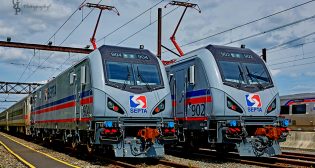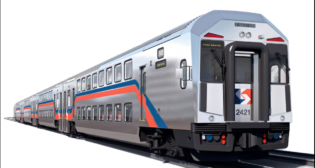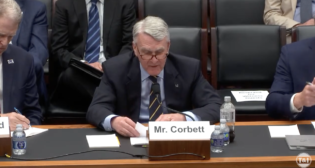
Transit Briefs: Denver RTD, NJ Transit
Written by Marybeth Luczak, Executive Editor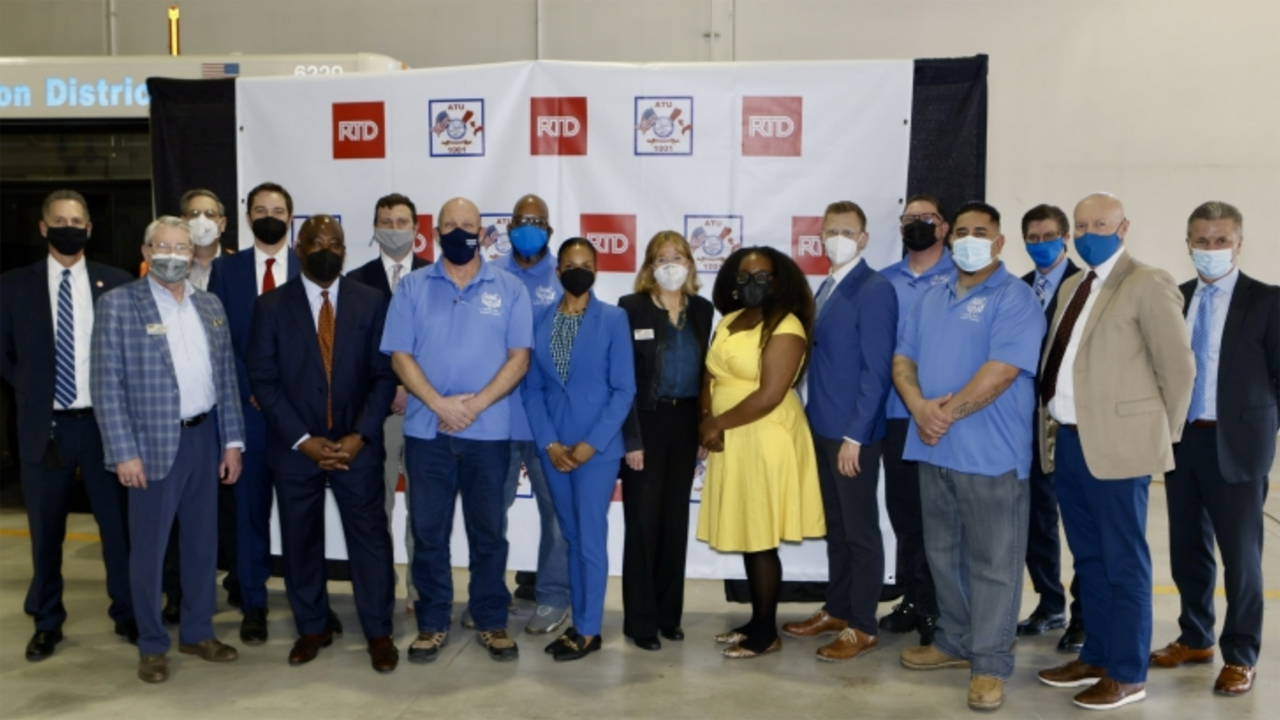
The Board of Directors at Denver RTD has authorized the agency’s General Manager and CEO Debra A. Johnson (pictured ninth from left) to enter into a successor three-year collective bargaining agreement with the Amalgamated Transit Union Local 1001, which represents two-thirds of RTD employees.
The Denver Regional Transportation District (RTD) Board has authorized a new contract for union employees. Also, New Jersey Transit (NJ Transit) is creating its first-ever Sustainability Plan.
The Denver RTD Board of Directors on March 18 authorized the agency’s General Manager and CEO Debra A. Johnson to enter into a successor three-year collective bargaining agreement with the Amalgamated Transit Union Local 1001 (ATU 1001), which represents two-thirds of RTD employees. The agreement addresses wages, hours, and terms and conditions of employment.
Leadership teams from RTD and ATU 1001 reached a tentative agreement on Feb. 28, after more than five months of negotiations. On March 17, ATU 1001 President and Business Agent Lance Longenbohn informed GM/CEO Johnson that union employees had ratified it.
“Providing RTD’s represented employees with a market-based living wage, better quality of life and career opportunities were the focus of negotiations for the most recent contract, which will be made retroactive to Jan. 1, 2022, and extend through Dec. 31, 2024, to align with the agency’s annual budget,” RTD reported. “Current RTD employees will receive the new wage rates, retroactive to January, by May 2022. The prior three-year CBA [collective bargaining agreement] took effect in March 2018 and was extended one year in light of the COVID-19 pandemic.”
All RTD union-represented employee wages will be raised more than 25% over the period of the contract, starting with a 16% or higher increase in the first year and 4% in each subsequent year.
A 16.6% increase for RTD’s bus and rail operators in the first year brings their starting hourly wage from $20.58 to $24, and provides the first opportunity for an increase at six months instead of one year, with increases every six months and reaching the top rate after four- and one-half years. Other entry-level wages include $30.25 for a general repair mechanic in Bus Operations; $35.65 for a signal/traction power maintainer in Light Rail Maintenance; $34.48 for a journeyman electrician in Facilities Maintenance; $33.77 for an electro mechanic in Light Rail Maintenance; and $29.68 for a track maintainer in Commuter Rail Maintenance. Other topics addressed included improved retirement benefits for all employees; a modified work week (expanding a four 10-hour-day work week to all groups, where practicable, is under consideration; the prior contract established this approach for certain maintenance positions); flexibility around how employees can take vacations; improvements related to operator access to restroom facilities; and the establishment of U.S. Department of Labor-registered apprenticeship programs for positions such as mechanics.
“The agency could not deliver high-quality transit services throughout the Denver metro area without the dedicated union employees that constitute the majority of the workforce,” Johnson said.
“The bargaining was conducted in good faith, and many significant improvements were made in wages and working conditions,” Longenbohn said. “Under General Manager Debra Johnson’s guidance, the district demonstrated a commitment to its union employees and their well-being that is sure to contribute to our mutual goal of the success of the agency.”
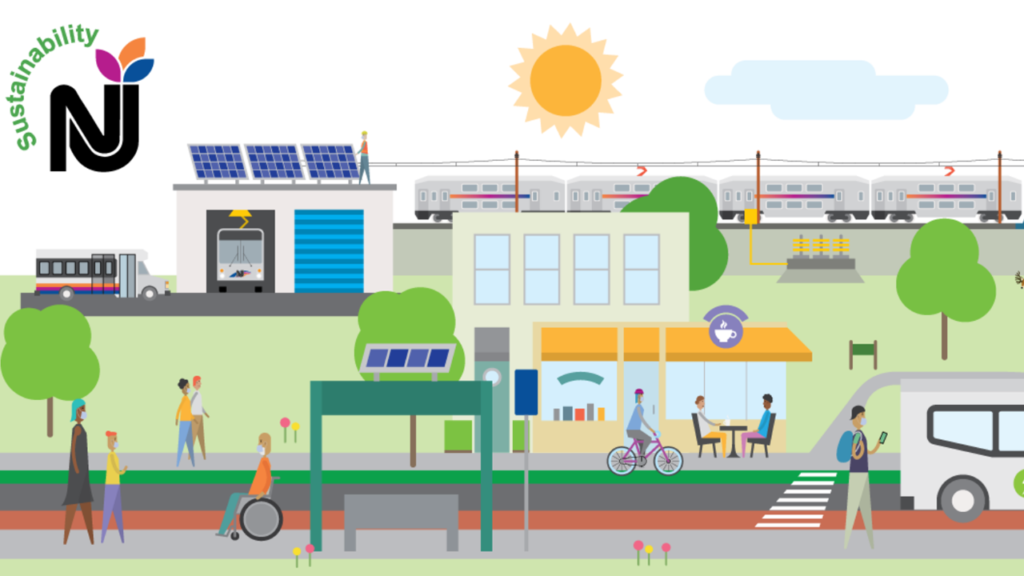
NJ Transit reported on March 18 that it will develop a Sustainability Plan that covers themes such as water and energy consumption, equitable transportation, clean vehicle technology, resiliency, and the customer experience. The agency’s first step will be to gather feedback on sustainability priorities from state stakeholders, including the general public, environmental advocates, community leaders, and NJ Transit riders and employees. A series of webinars and surveys will be conducted, with the first webinar set for March 23.
“Commitment to sustainability is one of the most important commitments NJ Transit has made as we strive for a clean energy future,” New Jersey Department of Transportation Commissioner and NJ Transit Board Chair Diane Gutierrez-Scaccetti said. “We’re on track to fully transition to a zero-emissions bus fleet by 2040.”
“Thanks to the comprehensive roadmap established through NJT2030, NJ Transit is working harder than ever to promote a more sustainable future for our planet,” President and CEO Kevin S. Corbett said. “NJ Transit’s first-of-its-kind Sustainability Plan will build on efforts already under way in a cleaner rail and bus fleet, expanding and optimizing solar energy assets, implementing energy efficiency and conservation measures—in short, furthering our goal to be one of the most socially responsible, environmentally-friendly transit agencies in the world.”
